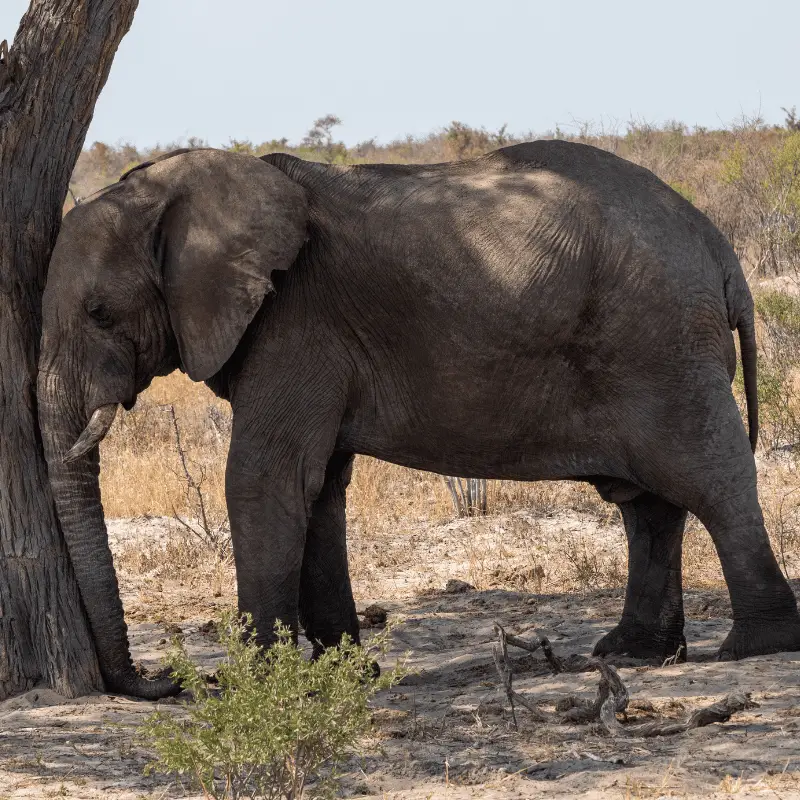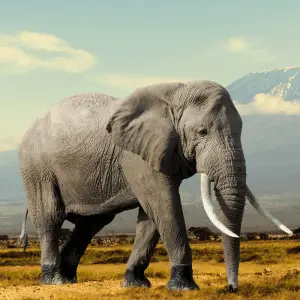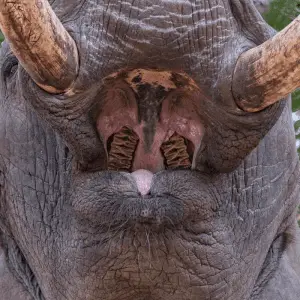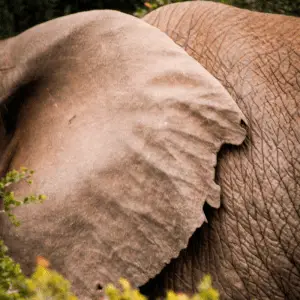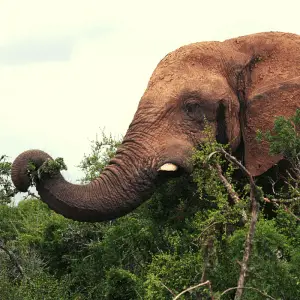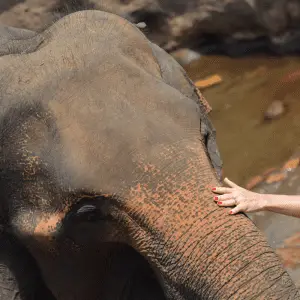Sleep is a necessary biological process that most mammals require to function correctly. While sleeping, the body of mammals synthesizes hormones, repairs tissues, and restores all the depleted energy. That is why most mammals require a certain amount of sleep every day.
Yes, adult elephants do not lie down on the ground while sleeping. It’s safer for the elephants to sleep standing up. However, baby elephants often sleep on the floor. Elephants sleep only a couple of hours a day, mainly at night, and they do this while standing. Elephants in captivity sleep longer, about four to six hours per day.
Humans need about seven to nine hours of sleep daily to function optimally. But the requirement for sleep varies from one mammal to the next.
Animal Sleeping Pattern
| Animal | Average Hours of Sleep |
|---|---|
| Cat | 12-16 |
| Dog | 10-14 |
| Giraffe | 3 |
| Horse | 3-5 |
| Cow | 4-5 |
| Sheep | 5-7 |
| Possum | 18 |
| Elephant | 2-6 |
As you can see from the table above, some animals, like giraffes, require only three hours of sleep a day, while others, like possums, can sleep up to 18 hours.
The bigger the animal’s size, the less sleep it requires.
Elephants Sleeping Habits In The Wild
In their natural habitat, elephants tend to sleep for shorter periods. Also, elephants tend to sleep while they are still standing.
The reason for this unique sleeping habit is deeply rooted in their survival instinct.
As elephants have colossal body mass, it takes a significant amount of time ad energy to properly get up from the ground.
In the face of danger, getting up from the ground can be a prolonged and uncomfortable process for an elephant.
In the wilderness, wild elephants need to be constantly aware of predators and alert to react fast if necessary.
If elephants cannot do this, their chances of survival will decrease significantly.
Over time, elephants have evolved a unique sleeping habit of sleeping without lying on the ground.
Having straight legs help the elephants stand up whilst sleeping.
Another tactic that elephants have developed over the years is not to go to sleep together. The group will take turns sleeping to keep the other herd members safe.
In the wild, elephants will always try to sleep in a group. Even while sleeping in groups, the elephants do not sleep simultaneously. While one group of elephants sleeps, another group guards to protect them. These elephants watch for dangers and will wake the sleeping elephants if they find something disturbing.
Wild elephants often lean on a large mound or a tree. If the elephants lie down on the ground for too long, the massive weight of their body can prevent proper blood flow to a particular area of the body.
Due to their size, elephants can develop pressure wounds from sleeping on the floor. This is another reason the elephants sleep for a short period and do not lie down while taking a nap.
Do baby elephants sleep standing up?
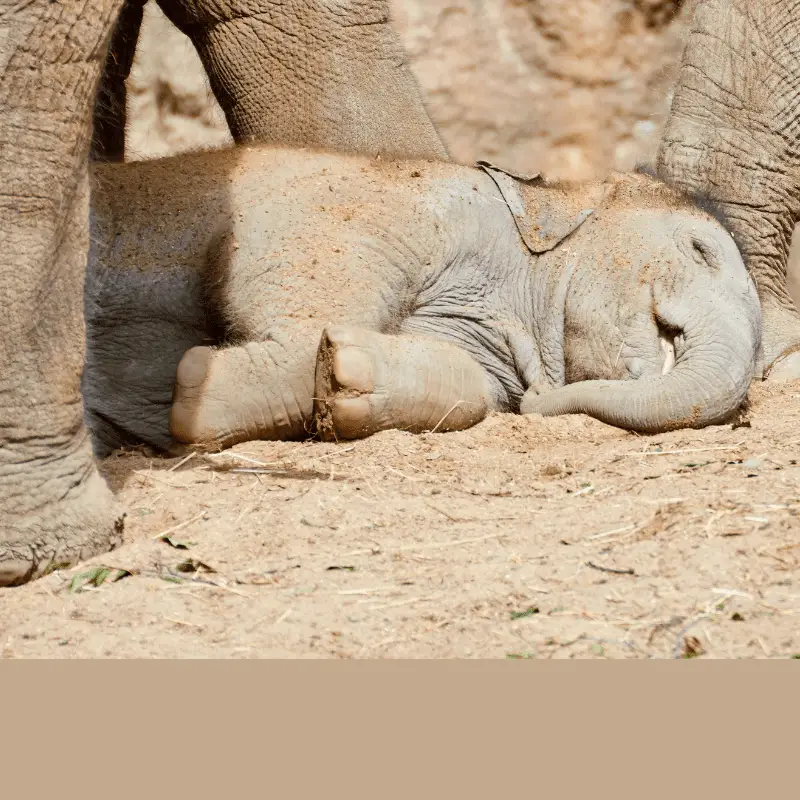
Baby elephants can sleep standing up; however, they mainly lie on the ground to get rest. While they sleep, the older herd members will closely watch the baby elephants and watch for any potential threats lurking nearby.
Animals That Sleep Standing Up
- Camels
- Elephants
- Giraffes
- Horses
How Long Does An Elephant Sleep?
Elephants in the wild tend to sleep only for two hours every day and can function just as well on this amount. However, elephants living in zoos and safari parks sleep between four and six hours daily.
Why do wild elephants sleep for so little time?
Elephants sleep less because they need to consume much food daily to survive. So, if they sleep for long hours, the elephants will face more threats like poachers and lions.
Why do elephants in captivity sleep longer?
The elephants living in zoos and safari parks do not have the pressure of finding their food and drinking water every day. The zookeepers and elephant handless provide these elephants with all the required water and food throughout the day and night. Captivate elephants tend to get more sleep as they dont have a fear of any unannounced dangers.
In contrast, wild elephants sleep less as they need to search for their food and water resources even during drought. Wild elephants must constantly be on guard from lions and poachers that may attack their herd.
How long can elephants go without sleep?
Wild elephants can stay awake for 46 hours without sleep if needed; in extreme cases, they search for food and water. The matriarch elephant is the herd leader, and they tend to get the least amount of sleep.
Baby Elephants Sleeping Habits
Baby elephants in captivity prefer to sleep in a warm, safe, and comfortable spot. Just like us, baby elephants prefer a bed of grass or straw. Elephant babies also like to have blankets.
Baby elephants in captivity sleep between seven and eight hours a day. Unlike wild baby elephants, they also get uninterrupted sleep.
Wild baby elephants often get woken up at signs of danger noticed by the herd or the constant need to search for food.
Do elephants yawn?
Yes, elephants do yawn. However, considering their lack of sleep, elephants don’t yawn constantly. Elephants also yawn when other elephants yawn within the herd. This type of yawning is called intraspecific contagious yawning.
Do Elephants dream?
It is believed that elephants experience REM sleep. REM sleep is a stage of sleep characterised by rapid eye movements, increased brain activity, and vivid dreams. This type of sleep is when you dream and is observed in us. It has been tested on other animals, like rats, cats, and dogs. However, it can be hard to test the brain activity of an elephant because they have a thick skull and six inches of it. REM sleep is vital for saving critical memories for elephants. However, it is yet to be proven.
Now that you know the elephants’ sleeping behaviour, share your knowledge to spread positive information about these incredible gentle giants.

